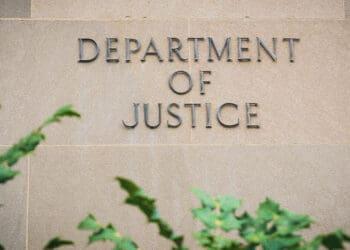How “Supersociedades” is Doing in Battling Corruption
Matteson Ellis summarizes developments with respect to Colombia’s Superintendent for Corporate Entities (Supersociedades). Numerous investigations are underway, sanctions have been levelled and the country’s leaders are speaking out in no uncertain terms to condemn wrongdoing.
Recent announcements in Colombia indicate that the country is taking seriously its new transnational bribery law. Colombia’s Superintendent for Corporate Entities (“Supersociedades”), the local enforcement body for the new law, sanctioned its first company for a foreign bribery offense involving Ecuador, applying a penalty of about US$1.8 million. Local press reports that Supersociedades also fined a company approximately US$50,000 for refusing to provide information as part of another foreign bribery investigation under the new law, and then referred the case to local prosecutors. Other media agencies report that Supersociedades is investigating 12 companies for foreign bribery.
These developments follow comments made by senior government officials at the “20 Years of the OECD Anti-Bribery Convention: Latin American Perspectives” event held by Colombia’s Secretariat of Transparency in February 2018 in Bogotá. Participants there included Colombian President Juan Manuel Santos; U.S. Ambassador to Colombia Kevin Whitaker; OECD Working Group on Bribery Chair Drago Kos; and anti-corruption prosecutors from Colombia, Argentina, Brazil, Peru, Mexico, Panama, the U.S. Department of Justice and the Inter-American Development Bank. I also participated, offering private sector perspectives on enforcement and compliance matters.
A main focus of the OECD event was Colombia’s Transnational Bribery Act (Ley 1778), the country’s new foreign bribery law, enacted on February 2, 2016, and designed to bring the country’s laws in line with its commitments under the OECD Anti-Bribery Convention. The law bolsters Colombia’s enforcement regime and creates corporate administrative liability for bribes paid abroad. It also establishes explicit credit for companies with adequate anti-corruption compliance programs. The law applies to Colombian companies, including the Colombian subsidiaries of non-Colombian companies registered to do business there.
The following notable points were made at the OECD conference about enforcement of the new law:
Investigations in Colombia Underway
Lending support to the recent media reports, Francisco Reyes, who heads Supersociedades, announced that his agency currently has “more than 10 investigations” underway pursuant to the new law. Because the law applies only to conduct that occurred after it took effect, the number of open investigations is impressive. Superintendent Reyes added that his agency has established cooperation agreements with authorities in both Peru and Brazil for foreign bribery investigations and is actively seeking to do the same with authorities in other jurisdictions.
Sanctions for Obstruction
Superintendent Reyes announced that Supersociedades will sanction companies not only for underlying foreign bribery offenses, but also for obstruction of his agency’s investigations. Obstruction could include concealing information, refusing access to requested information, submission of information with significant errors and general failure to cooperate with a Supersociedades investigation.
Forensic Laboratory Established
Superintendent Reyes said that his agency has set up a forensic laboratory to support its foreign bribery investigations. The lab gives the enforcement agency the ability to review electronic data from computers and cellular phones and to recover company data that has been erased.
OECD Support for Transnational Bribery Law
Some have speculated that since Colombia’s Transnational Bribery Act creates corporate administrative liability but not corporate criminal liability for foreign bribery offenses, and the penalty level is capped at US$55 million, these limitations might cause the OECD Working Group to conclude that the noncriminal penalties are not “effective, proportionate and dissuasive,” as required by Article 3 of the OECD Anti-Bribery Convention. At the Colombia event, however, Working Group Chair Drago Kos helped put such speculation to rest, saying: “I would be happy if all members of the group had such a cap to meet the sanctions requirement. A sanction does not need to be criminal; if administrative liability functions in the same way, it can meet the standard. I will be interested to see how this cap is applied in practice.”
President Santos Emphasizes Prevention
President Santos stated that battling corruption historically has been part of the fabric of Colombian society, explaining that beginning in 1824, liberator Simon Bolivar demanded the death penalty for public officials who violated the public trust by seeking personal gain from their positions. President Santos added that corruption prevention has only recently become part of the equation, highlighting that international agreements like the OECD Anti-Bribery Convention create new and positive opportunities for countries like Colombia to tackle the “cancer” of corruption.
Detailed Compliance Guidance
Pursuant to the Transnational Bribery Act, Supersociedades has issued a detailed guide on anti-corruption compliance expectations. Miller & Chevalier was retained to advise the country in developing the guidance. The result is a highly detailed, 22-page document providing specific instruction for compliance principles, including risk assessments, written policies, tone from the top, trainings, compliance teams, third-party due diligence and internal reporting mechanisms. Supersociedades has taken the position that companies that perform international work in certain industries are required to have compliance programs in place that meet the standards set forth in the guide. These industries include pharmaceuticals, infrastructure and construction, manufacturing, mining and energy and information technology and communications. Supersociedades has begun requesting declarations from companies in this group, stating that they have adopted adequate programs pursuant to the guidance, which they will keep on file and consult when future investigations develop.
This article was republished with permission from FCPAméricas Blog, for which Matteson Ellis is founder, editor and regular contributor.
The opinions expressed in this post are those of the author in his or her individual capacity and do not necessarily represent the views of anyone else, including the entities with which the author is affiliated, the author`s employers, other contributors, FCPAméricas or its advertisers. The information in the FCPAméricas blog is intended for public discussion and educational purposes only. It is not intended to provide legal advice to its readers and does not create an attorney-client relationship. It does not seek to describe or convey the quality of legal services. FCPAméricas encourages readers to seek qualified legal counsel regarding anti-corruption laws or any other legal issue. FCPAméricas gives permission to link, post, distribute or reference this article for any lawful purpose, provided attribution is made to the author and to FCPAméricas LLC.



 Matteson Ellis serves as Special Counsel to the FCPA and International Anti-Corruption practice group of Miller & Chevalier in Washington, DC. He is also founder and principal of Matteson Ellis Law PLLC, a law firm focusing on FCPA compliance and enforcement. He has extensive experience in a broad range of international anti-corruption areas. Previously, he worked with the anti-corruption and anti-fraud investigations and sanctions proceedings unit at The World Bank.
Mr. Ellis has helped build compliance programs associated with some of the largest FCPA settlements to date; performed internal investigations in more than 20 countries throughout the Americas, Asia, Europe and Africa considered “high corruption risk” by international monitoring organizations; investigated fraud and corruption and supported administrative sanctions and debarment proceedings for The World Bank and The Inter-American Development Bank; and is fluent in Spanish and Portuguese.
Mr. Ellis focuses particularly on the Americas, having spent several years in the region working for a Fortune 50 multinational corporation and a government ethics watchdog group. He regularly speaks on corruption matters throughout the region and is editor of the FCPAméricas Blog.
He has worked with every facet of FCPA enforcement and compliance, including legal analysis, internal investigations, third party due diligence, transactional due diligence, anti-corruption policy drafting, compliance training, compliance audits, corruption risk assessments, voluntary disclosures to the U.S. government and resolutions with the U.S. government. He has conducted anti-corruption enforcement and compliance work in the following sectors: agriculture, construction, defense, energy/oil and gas, engineering, financial services, medical devices, mining, pharmaceuticals, gaming, roads/infrastructure and technology.
Mr. Ellis received his law degree, cum laude, from Georgetown University Law Center, his masters in foreign affairs from Georgetown’s School of Foreign Service, and his B.A. from Dartmouth College. He co-founded and serves as chairman of the board of
Matteson Ellis serves as Special Counsel to the FCPA and International Anti-Corruption practice group of Miller & Chevalier in Washington, DC. He is also founder and principal of Matteson Ellis Law PLLC, a law firm focusing on FCPA compliance and enforcement. He has extensive experience in a broad range of international anti-corruption areas. Previously, he worked with the anti-corruption and anti-fraud investigations and sanctions proceedings unit at The World Bank.
Mr. Ellis has helped build compliance programs associated with some of the largest FCPA settlements to date; performed internal investigations in more than 20 countries throughout the Americas, Asia, Europe and Africa considered “high corruption risk” by international monitoring organizations; investigated fraud and corruption and supported administrative sanctions and debarment proceedings for The World Bank and The Inter-American Development Bank; and is fluent in Spanish and Portuguese.
Mr. Ellis focuses particularly on the Americas, having spent several years in the region working for a Fortune 50 multinational corporation and a government ethics watchdog group. He regularly speaks on corruption matters throughout the region and is editor of the FCPAméricas Blog.
He has worked with every facet of FCPA enforcement and compliance, including legal analysis, internal investigations, third party due diligence, transactional due diligence, anti-corruption policy drafting, compliance training, compliance audits, corruption risk assessments, voluntary disclosures to the U.S. government and resolutions with the U.S. government. He has conducted anti-corruption enforcement and compliance work in the following sectors: agriculture, construction, defense, energy/oil and gas, engineering, financial services, medical devices, mining, pharmaceuticals, gaming, roads/infrastructure and technology.
Mr. Ellis received his law degree, cum laude, from Georgetown University Law Center, his masters in foreign affairs from Georgetown’s School of Foreign Service, and his B.A. from Dartmouth College. He co-founded and serves as chairman of the board of 








